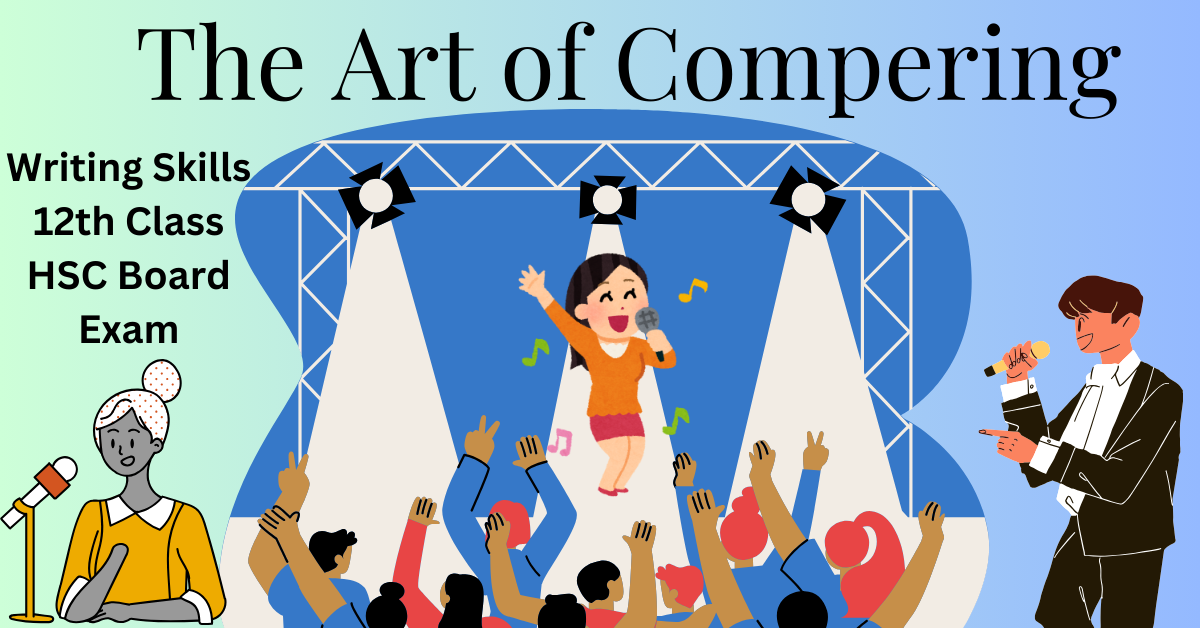4.3 A Midsummer-Night’s Dream
Introduction:
William Shakespeare: There has never been as great a name in English literature as that of William Shakespeare (26 April 1564-23 April 1616 – 52 years) Shakespeare – a playwright, poet, and actor nicknamed Bard of Avon –considered as England’s National poet, contributed 38 plays,154 sonnets and two epic poems in a short span of 25 years. His plays are categorized into (i) Histories (ii) Comedies and (iii) Tragedies. His great comedies. Merry wives of Windsor, Merchant of Venice, Comedy of Errors, Much Ado About Nothing, MidsummerNight’s Dream, As you Like It should be read as a group because of their shored theme.
A Midsummer Night’s Dream was written around 1595 as an entertainment /entertainer at the marriage of some great nobleman and was later performed in a public theatre. It embodies the Elizabethan era-which believed in witches and spirits, an inevitable part of this drama. These elements and dramatic material are used here along with songs, dances, clever ideas, mistaken identities, etc. The play forces the reader to land into the beautiful land of imagination where all adventures seem possible in its fictitious fairy world. By the end of the play, Shakespeare makes us think about the way human beings think act, and love, once again underlining his deeper awareness of human nature.
Theme:
There is a strong theme of love in Shakespeare’s play, ‘A Midsummer Night’s Dream. Shakespeare portrays how people tend to fall in love with those they find attractive. But when you discover real love, it is much more profound than physical attraction.
Love and marriage:
Some scenes related to marriage and the difficulties of making relationships work: Act 1 Scene 1: Theseus describes his courtship of Hippolyta and the confusion of the four lovers begins with Egeus’ formal complaint about his daughter’s involvement with Lysander. In Act 2 Scene 1, Oberon and Titania fight over the Indian boy. Helena confronts Demetrius in the forest. In Act 3 Scene 2, Lysander falls in love with Helena after waking up with love juice in his eyes. In Act 4 Scene 1, Titania expresses her love for Bottom, a donkey who has been transformed. In Act 5, Scene 1, three weddings are celebrated with a fairy blessing and bring the play to a happy conclusion.
Order and disorder:
A balance between irrationality and rationality, between laws and magic, is necessary for love, harmony, and creativity. Act 1, Scene 4: Theseus tells Hermia what will happen if she disobeys her father, prompting Hermia to turn and leave. Act 2 Scene 1: Titania describes the ramifications of her dispute with Oberon for the natural world. Act 3 Scene 1: Bottom’s transformation interrupts the Mechanicals’ rehearsal. Act 3 Scene 2: Puck’s mistakes cause the lovers much confusion. The princess expresses her love for Bottom, who has been transformed into a donkey. Act 5 Scene 1: Three marriages and a fairy blessing bring everything to an end.
Appearance and reality:
Aspects of appearance and reality and the fact that people and events are often not what they appear to be. Act 3 Scenes: Bottom’s transformation causes the Mechanicals to be distracted from their rehearsal. Act 3 Scene 2: Puck’s mistakes confuse the lovers. Titania awakes from her fantasy. The lovers discuss that recent events seem like a dream. Act 5 Scene 1: The theme of illusion and reality is explored through creative imagination and its reliance on the unconscious, the magical, and the impenetrable.
Creative imagination:
In addition to creative imagination and its reliance on the unconscious, the mysterious, and the magical, here are a few related scenes: Act 4 Scene 1: Titania awakens from her fantasy, the lovers comment on how the recent events are now like a dream and Bottom tells of his vision.
The plot of the play

In the Palace
Theseus wins Hippolyta in war. They are to be married with great pomp in four days. He instructs Philostrate to arrange for the celebration with great festivities. Egeus marches with Hermia, Lysander, Demetrius, to complain that Hermia disobeys him and stubbornly refuses to marry Demetrius and is in love with Lysander. The DukeTheseus urges her to obey her father but she refuses him. The Duke gives her three alternatives to marry Demetrius or become a nun or suffer a death sentence. The Duke of Athens – Theseus – gives her time to think this over until the day of his marriage.
Lysander and Hermia decide to elope to the Woods and get married. Demetrius who used to love Helena (Hermia’s friend), has rejected her love and is now interested in Hermia. Hermia reveals her secret plan to her dear friend Helena in order to comfort her. Hermia has made a last-ditch attempt to win back the love of Demetrius for Helena who reveals to Demetrius that Hermia plans an elopement with Lysander to the woods. Demetrius decides to follow Hermia, and Helena decides to follow Demetrius.
Quince’s cottage: A group of workmen from Athens wishes to perform, a play at the Duke’s wedding. Quince is in charge of the direction, production, and rehearsal of that play. Bottom one of the over-enthusiastic, talkative, self-appointed active worker from the group wants to play every role of the play- ‘Pyramus and Thisby’. They all plan to meet in the Woods for the rehearsal.
In the Woods: A different world unfolds in the Woods – The king of faeries – Oberon and Queen of Faeries – Titania are having a fight over the custody of an Indian boy as to who shall own him. In order to teach a lesson to Titania – Oberon hatches a plan with the help of Puck Oberon orders Puck to bring the magic potion – ‘Love in Idleness’ the juice of which if poured on the eyelids of a sleeping person, makes him/her fall madly in love with the first person he/she sees after waking up. He thus plans to madden Titania and get custody of the Indian boy. Now, you can very well imagine what tricks Puck – a mischief spirit is going to play with this magic potion in the forests.
As Demetrius enters the wood, followed by Helena Oberon notices his cold behavior with Helena and decides to develop feelings for her in the heart of Demetrius and orders Puck to apply the juice on his eyelids and marches into another part of the wood and applies the love potion on the eyelids of his sleeping wife. Soon arrives the eloping couple …. Tired, they too sleep in the same wood. Taking Lysander for Demetrius Puck squeezes the juice on his eyelids. Helena, who enters the wood following Demetrius, proves to be the first person Lysander sees after waking up and falls in love with her instantly. Puck, who is appalled by the awful acting of Bottom, bewitches him by transforming his head into that of an ass. Titania sees ass-headed Bottom and one can guess the result.
In another part of the wood: Puck wins praise by Oberon for his affair of Titania –Botton. But as Oberon realizes Puck’s mistake of using the love potion for Lysander instead of Demetrius, he squeezes it on the eyelids of Demetrius and sends Puck to fetch Helena which leads to the fierce quarrel between Hermia and Helena as also between Lysander and Demetrius for Helena. Oberon then gets the muddle sorted out by setting the wrong right in the case of all Athenians by removing the spell of potion from Lysander, restoring his love for Hermia. Oberon also feels the need to release Titania from this spell as he feels sorry for her and his purpose of obtaining the Indian boy is also served. He orders Puck to restore Bottom’s head. Theseus, Hippolyta, and Egeus enter and see the four Athenians. It is the day of the declaration of Hermia about her decision. But the Duke relents to see the love between Demetrius and Helena and happily allows Hermia to marry Lysander.
In the final scene, the joyous lovers appear on the scene and Theseus decides it is time to plan the festivities and chooses to see the hilarious play ‘Pyramus and Thisbe’ performed. In the end, Oberon and Titania with their fairies and elves come to sing dance, and bless the marriage. Thus the play ‘A Midsummer Night’s Dream’ ends on a happy note.
Three Alternatives of Theseus the Duke of Athens:

Egeus marches with Hermia, Lysander, Demetrius, to complain that Hermia disobeys him and stubbornly refuses to marry Demetrius and is in love with Lysander. The DukeTheseus urges her to obey her father but she refuses him. The Duke gives her three alternatives to marry Demetrius or become a nun or suffer a death sentence. The Duke of Athens – Theseus – gives her time to think this over until the day of his marriage.
Characters:
Theseus: The Duke of Athens, Theseus, is betrothed to Hippolyta.
Hippolyta: The warrior queen of the Amazons, Hippolyta, is betrothed to Theseus.
Lysander: Another young lover. In love with Hermia. Elope with Harmia in the woods and wants to get married to her.
Hermia: A young lover and the daughter of Egeus. In love with Lysander. Elope with Lysander in the woods.
Egeus: The father of Hermia. He wants to get marry his daughter to Demetrius.
Demetrius: Another young lover. Egeus’ pick for Hermia. wants to marry Harmia and follows her in the woods.
Helena: Another young lover. In love with Demetrius and wants to get married to him.
Peter Quince: A carpenter and the director of the “mechanicals.”
Nick Bottom: weaver and one of the “mechanicals.” Plays Pyramus. Whose head transformed into an ass head.
Francis Flute: A bellows mender, also one of the “mechanicals.” Plays Thisbe.
Tom Snout: A tinker, also one of the “mechanicals.” Plays a Lion.
Snug: A joiner, also one of the “mechanicals.” Plays a Wall.
Robin Starveling: A tailor, also one of the “mechanicals.” Plays Moonshine.
THE FAIRES
Oberon: The King of the Fairies. Hatches a plan to teach a lesson to his queen Titania.
Titania: The Queen of the fairies.
Puck Robin Goodfellow: Oberon’s servant. Mischievous spirit. Puck transformed the heat Of Botton into an Ass head.
Fairies attend to Titania – Peaseblossom, Cobweb Moth, and Mustardseed.
You may also learn about The Rising of the Moon by Lady Gregory








I commend you for your quick thinking as well as for your thorough work..That’s a very good observation…An interesting way of looking at it….Where have you been hiding all this talent?…..Your style has spark. …”We are the lucky one having you as a english teacher💯✌🏻
I commend you for your quick thinking as well as for your thorough work..That’s a very good observation…An interesting way of looking at it….Where have you been hiding all this talent?…..Your style has spark.💯✌🏻
Thanku sir 💯✌🏻
Thanku so much sir!..
[…] A Midsummer-Night’s Dream by William Shakespeare 11th class 2022 […]